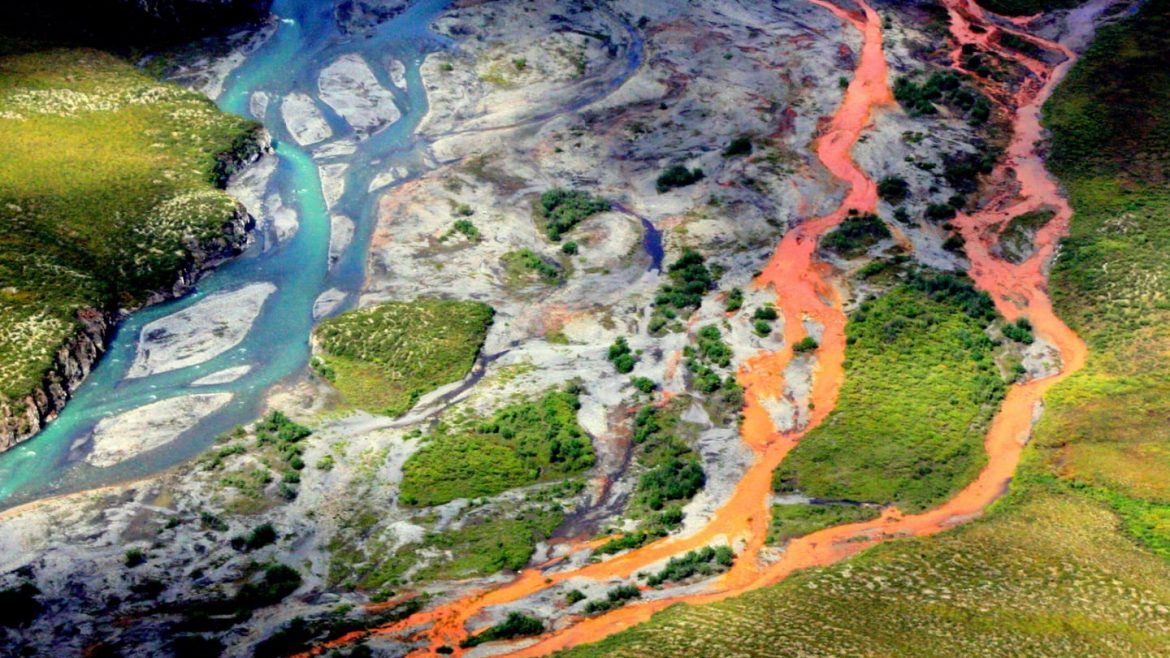A new study has shown that dozens of rivers and streams in Alaska are turning rusty orange, a likely consequence of thawing permafrost.
The Arctic is the fastest-warming region in the globe, and as the frozen ground below the surface melts, minerals once locked away in that soil are now seeping into waterways.
Brett Poulin, author of the study and assistant professor of environmental toxicology at University of California Davis said “It’s an unforeseen impact of climate change that we’re seeing in some of the most pristine rivers in our country,”.
The permafrost thaw is exposing minerals to oxygen in a process known as weathering, which increases the acidity of the water and dissolves metals like zinc, copper, cadmium and iron – the most apparent metal that gives the rivers a rusty color visible even from satellite images. The study highlights the potential degradation of drinking water and risk to fisheries in the Arctic.
Poulin said that “when mixed with another river, it can actually make the metals even more potent [in its] impact to aquatic health,”.
Read also: Meteorologist criticises Ron DeSantis over Florida’s ‘don’t say climate change’ law
According to available reports, the phenomenon was first observed in 2018, when researchers noticed the milky orange appearance of the rivers across northern Alaska’s Brooks Range, a stark contrast to the crystal clear waters seen the year prior.
Within the year, a tributary of the Akillik river in Kobuk Valley national park saw the complete loss of two local fish species: the dolly varden and the slimy sculpin.
“Our data suggests that when the river turned orange, we saw a significant decrease in macroinvertebrates and biofilm on the bottom of the stream, which is essentially the base of the food web,” Poulin said of the rusting phenomenon. “It could be changing where fish are going to be able to live.”
The rusting is a seasonal phenomenon, occurring in the summer typically during July and August, when the soil is thawed the deepest. The researchers at the National Park Service, US Geological Survey and University of California Davis now want to better understand the long-term implications of the changing water chemistry in places with continuous permafrost, which includes Arctic regions such as Alaska, Canada, Russia and parts of Scandinavia.
“It’s an area that’s warming at least two to three times faster than the rest of the planet,” said Scott Zolkos, an Arctic scientist at Woodwell Climate Research Center who was not involved in the study. “So we can expect these types of effects to continue.”
The research group shared that they were working closely with tribal liaisons in Alaska to ensure local communities get accurate information on the developing phenomenon.
Story was adapted from the Guardian.
